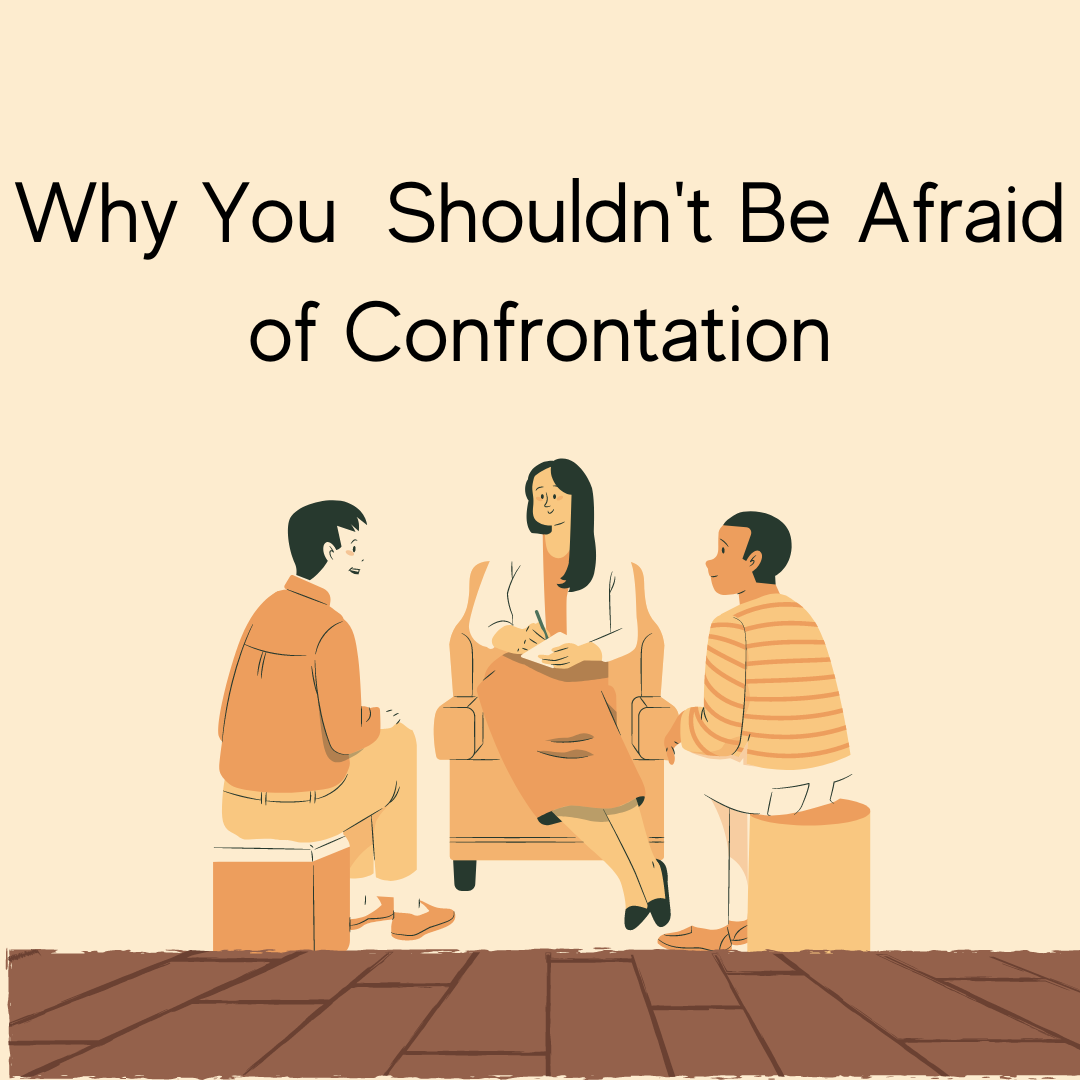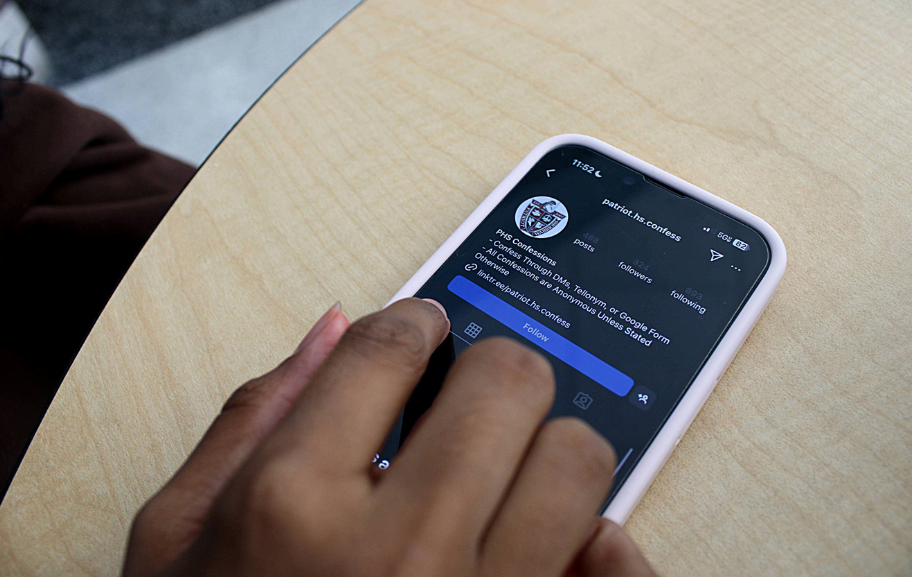Oftentimes, when we think of confrontation, we imagine dramatic sequences of screaming, blaming, and in-your-face arguments. Fighting is hurtful, and because we love the people close to us, we avoid confronting them because we don’t want anybody to get hurt. We tend to forget that confrontation, as well as just simple problem-solving, doesn’t have to be in the form of an argument, much less an aggressive one at all. In reality, confronting someone you care about may just be the thing that saves and strengthens the relationship entirely.
Why is confrontation important?
First and foremost, practicing healthy confrontation and discussion can help save/maintain interpersonal relationships in our lives. The relationships we build with people close to us, both in personal and professional spheres, can be one of the biggest factors in our happiness and well-being. One of the biggest contenders in a healthy relationship is being able to bounce back from issues, both big and small, in ways that won’t hurt either party. Being good at confrontation and overall problem-solving is useful and necessary in all forms of relationships, from parent-child to even marriage. In fact, one of the biggest predictors of divorce is how a couple handles conflict, rather than the more commonly raised issue of how many “fights” or “conflicts” they have.
Secondly, there’s a lot to learn about the people close to us and our relationships with them during instances of confrontation. It’s important to ask ourselves if this person is respectful to us and our boundaries, listens to our sides of the argument, and is compassionate and understanding toward certain personal problems we might be facing even when they are upset. Through this, we can learn about what kinds of people we’re inviting into our lives, and whether or not we want to keep them in our lives or find people who may be a better fit.
Lastly, the “silent treatment” has never helped anybody. When werewe’re fearful of confronting someone, we tend to keep quiet about things that bother us in hopes that time will allow us to just forget about the issue entirely. We fail to realize that, even when we stop thinking about the issue directly, pent-up frustrations or unhappiness towards someone in our lives often lead to resentment, misunderstandings, and misconceptions that can weaken the relationship overall. And the most dangerous thing about the silent treatment? It’s contagious. Frequently, when one partner begins to use the silent treatment, it’s more likely to be used again. Therefore, for many relationships, the silent treatment is solidified as a “problem-solving tactic,” and an unhealthy form of non-communication is normalized.
How can we deal with confrontation?
Always go into it with a clear head. When we’re hurt, upset, or angry, we find ourselves talking from that emotion instead of speaking with a purpose. It’s okay to ask for some space in the midst of a problem or a discussion. Asking the other person to give you some time to collect your thoughts is a good way to ensure that you don’t end up saying things you don’t mean, and it can help fix the issue at hand without added complications.
Be mindful of the other person. As stated in the above bullet, it’s common to say things we don’t mean when we speak from emotion. Be careful about word choice and tone when you speak, and try your best to be respectful towards the other person in the midst of an issue. Insulting the other person, or putting them down during a discussion is an incredibly toxic and ineffective habit. Throwing insults simply displays immaturity, which contradicts the effort to be mature through confrontation. Remember: the goal is to resolve an issue, not hurt the other person’s feelings.
Keep it private. When you have a conflict with someone or a few people, it’s important that the issue doesn’t go beyond its borders. In other words, involving people in conflicts when they don’t need to be can further complicate the issue. Having one-on-one discussions allows both parties to be heard out in full, without having added commentary or opinions get in the way. Confrontation doesn’t have to be big, dramatic, or scary, and making sure that added opinions or complications don’t barge through helps resolving the issue become much more straight-forward.
Be as good of a listener as you are a speaker. Though it’s important to be clear, concise, and mindful when speaking to someone during confrontation, it’s also important to hear the other person out. If you try to confront someone or resolve an issue without understanding their point of view or even their possible solutions to the problem, there’s a good chance that very little progress will be made. Listening to what they have to say can help you find ways to resolve the conflict in a way that benefits both parties involved. Confrontation isn’t a “one-person task”, it is in all cases a team or partner effort.
Don’t automatically paint yourself as the bad guy. One of the main things that stop people from confrontation is a fear of upsetting others and assumptions of how we might come across. When confronting someone about an issue, do not put yourself down by assuming you’re being “needy,” or “argumentative.” There is absolutely nothing wrong with displaying your concern for a problem or hurt over an action.Your feelings are valid. Do not succumb to a pool of apologies as soon as you enter the confrontation simply for bringing up the issue in the first place.
When learning about and understanding the importance of confrontation, it’s important to note that usually when people avoid confronting someone, there’s rarely any bad intention behind it. It’s common to believe that: avoiding confronting people = avoiding hurting people’s feelings. This misconception is widespread, so when recalling an instance that you couldn’t bring yourself to speak up about something you wanted to, don’t beat yourself up. Instead, learn about which confrontation tactics work best for you so you can put them to use the next time you get the chance. We owe it to ourselves to voice out our emotions and opinions when an issue arises, both to keep healthy relationships with our loved ones and to limit our inner anxieties. Always remember: Your voice is a gift, and being heard is your right.




